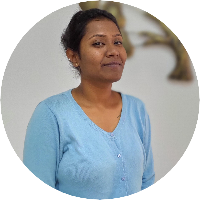But I must explain to you how all this mistaken idea of denouncing pleasure and praising pain was born and will give you a complete account of the system and expound the actual teachings of the great explore
Contact Us
Providing Affordable and Clean Water to Rural Communities in India
The rural population of India comprises more than 700 million people residing in about 1.42 million habitations spread over 15 diverse ecological regions. It is true that providing drinking water to such a large population is an enormous challenge. Our country is also characterized by non-uniformity in level of awareness, socio-economic development, education, poverty, practices and rituals which add to the complexity of providing water.
The health burden of poor water quality is enormous. It is estimated that around 37.7 million Indians are affected by waterborne diseases annually, 1.5 million children are estimated to die of diarrhea, a water-borne disease, alone.
The average availability of water is reducing steadily with the growing population. In 2020 India was declared a water stressed nation with cities like Chennai and Bengaluru experiencing drought. Groundwater is the major source of water in our country with 85% of the population dependent on it.
In urban slums, it is common to see hoards of people queuing up to get water from the public taps or the tankers along the road. Only a few people get access to the piped water supply. Paying for clean water from private companies is unaffordable and people often depend on sources that are polluted and unsafe to drink.
What can be the solution?
Centralized treatment and distribution of drinking water for remote rural areas are capital intensive and tend to compromise quality, the most vital parameter over the long run.
To mitigate these limitations, BharatCares, worked along with Pehel Foundation (CSR Arm of PNB Housing Finance Ltd.) and Pune-based ToYAM Technologies as a technical partner. Together, they have developed community-level decentralized solutions to create affordable provisions for safe drinking water.
It offers greater flexibility over the choice of purification mechanism adopted in accordance with local conditions, has no upfront cost to the consumer and is more water table friendly than centralized water purification plants.
The project began with mapping of villages in dire need of a water filtration system. During the initial analysis it was found that many villagers had subscribed to monthly water tankers to meet their needs. The water supply in their village was either non-functional or contaminated.
The ones who could not afford to pay private tankers, survive on the contaminated water. However, they face multiple health issues and constantly raise complaints about the water supply.
Finally, five villages were selected across India for the installation of water filtration systems. This includes Jakhwada Village, Ahmedabad, Gujarat, Sachana Village, Ahmedabad, Gujarat, Khori Village, Rewari, Haryana, Rajpura Village, Rewari, Haryana, Kaladwas Village, Udaipur, Rajasthan.
An affordable solution
After getting necessary permission from local authorities, they began working on the end-to-end process right from installation to regular maintenance. While BharatCares found suitable locations to build the systems, ToYam Technologies conducted water tests to analyze the quality of groundwater before installation.

Within a few months, the system was set in place at all five villages. Residents say that the well-functioning drinking water filtration plants have made their lives easier and reduced their expenses. Here, 20 liters of normal water is sold at Rs 5 and 15 liters of cold water at Rs 10.
To access the water, villagers are provided with water cards, which work like ATM cards, to withdraw water from the Water ATM i.e. the water filtration plants. The ones who earlier subscribed to private tankers have also decided to make a switch and save money.
ToYam Technologies has appointed a member from the village to operate, assist and monitor the system while BharatCares is monitoring the project closely through monthly site visits.
Based on the ground-level surveys conducted by BharatCares, it was found that the water filtration plant offers a multitude of qualitative benefits.
It includes:
- Cost savings for households,
- Reduction in water-borne diseases,
- Increased knowledge about WASH practices,
- Improves health status of 14000+ individuals and raises quality of life for 3470 households across five villages.
In light of the increasing demand for water it has become important to look for holistic and people-centered approaches for water management. This project has proved that a simple solution can change the fate of an entire community.

Roshini Muthukumar
Roshini Muthukumar, a native of Chennai, started her career as a content writer but made a switch to journalism to pursue her passion. She has experience writing about human interest stories, innovative technology, entrepreneurs, research blogs, and more. Previously, Roshini has done internships with The Hindu, Metroplus and worked as a correspondent with The Better India.